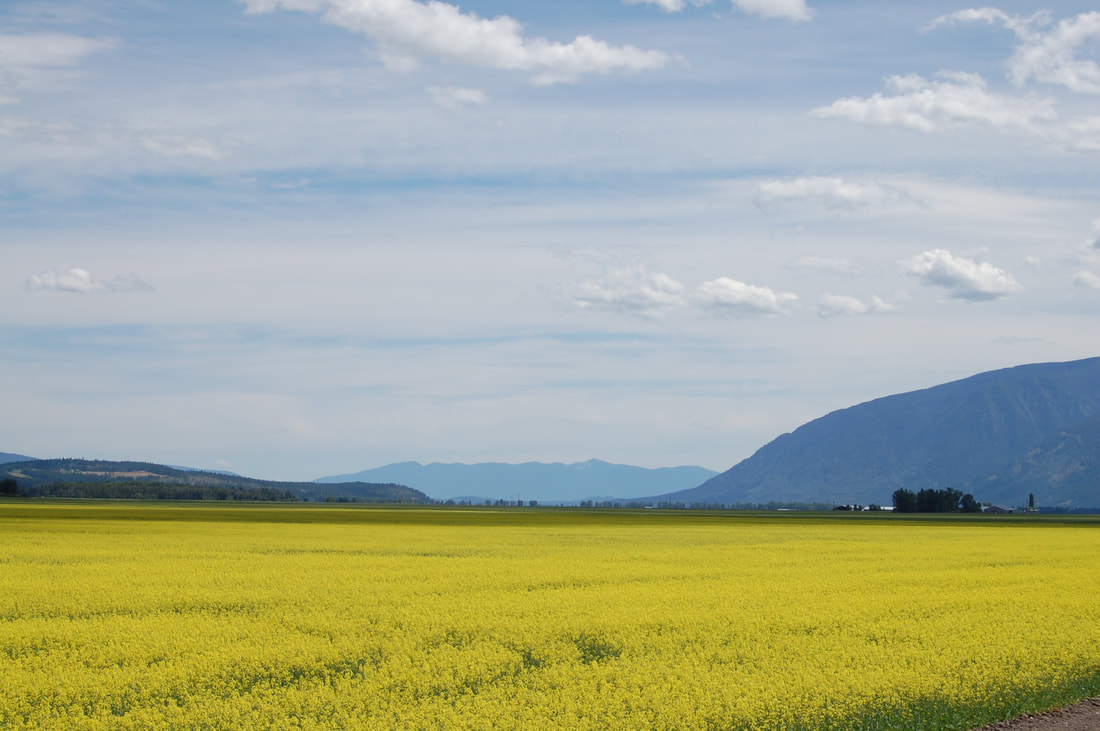Why i have a farm as my setting in Spindrifts I know next to nothing about farming except for what I observed and learned by visiting extended family farms in the summers when I was a young child. My great-grampa Nide was a farmer and several of his sons and their wives, my great-uncles and great aunts, were as well. I have many happy memories of visiting them and playing with cousins, running free all over the farm land and hunting for fresh eggs. Then one of my sisters married into a farming family and I observed and learned a bit more about farming. But mainly I developed a healthy respect for how much hard work goes into farming, and how the farming community always pulls together when someone needs help. Injured during harvest? Your neighbours will show up with their farm equipment and bring your crops in, in a matter of a day or two. Need a new roof on your barn? Things go better when farmers work together. We can all learn from farmers' neighbourly helping. And fifty years from now, in the time of Spindrifts, we will still need to eat, and will definitely still need farmers. And the challenges of climate change currently makes food security a key issue for our planet's survival. We will need to continue to count on farmers to feed us. Yet urban spread has resulted in the loss of much of our farmland in the last 100 years while our population has has increased significantly. On their website the Canadians for a Sustainable Society report that we have lost 65% of farmland in the Maritimes, Quebec, and Ontario alone in the last 100 years. If this trend continues partnered with arid summer conditions our food supply chain will inevitable become even more challenged. The idea of using greenhouses and hydroponic growing containers in my novel is not my idea. Close to where I live, where winters are harsh and snowfalls are meters deep, is a farm that provides year-round lettuce, kale, and other produce to communities throughout northern Ontario. I based this concept on the success of Truly Northern Farms, a family run business. Each one of us plays a key part in supporting local farms. In summers we can buy from local farmers, we can shop in small independently owned stores and frequent stores that bring in local products. When shopping in grocery stores, do you purchase locally, provincially, and nationally produced food? Do you ask your supermarkets to support local farmers? Supporting our local farmers is an investment in food security, and the food is also fresher and healthier for us. Just something to think about the next time you go shopping. I know next to nothing about farming except for what I observed and learned by visiting extended family farms in the summers when I was a young child. My great-Grampa Nide was a farmer and his sons, my great-uncles and their wives, were as well. I have many happy memories of visiting them and playing with cousins, running free all over the farm and hunting for fresh eggs.
|
Details
AuthorWelcome to the blog of A-M Mawhiney. I am the author of Spindrifts - A futuristic fantasy to inspire all who are interested in changing the world and Spelldrifts - Where magic meets destiny, both now available to order from most major online retailers here. Archives
October 2023
Categories |

 RSS Feed
RSS Feed
